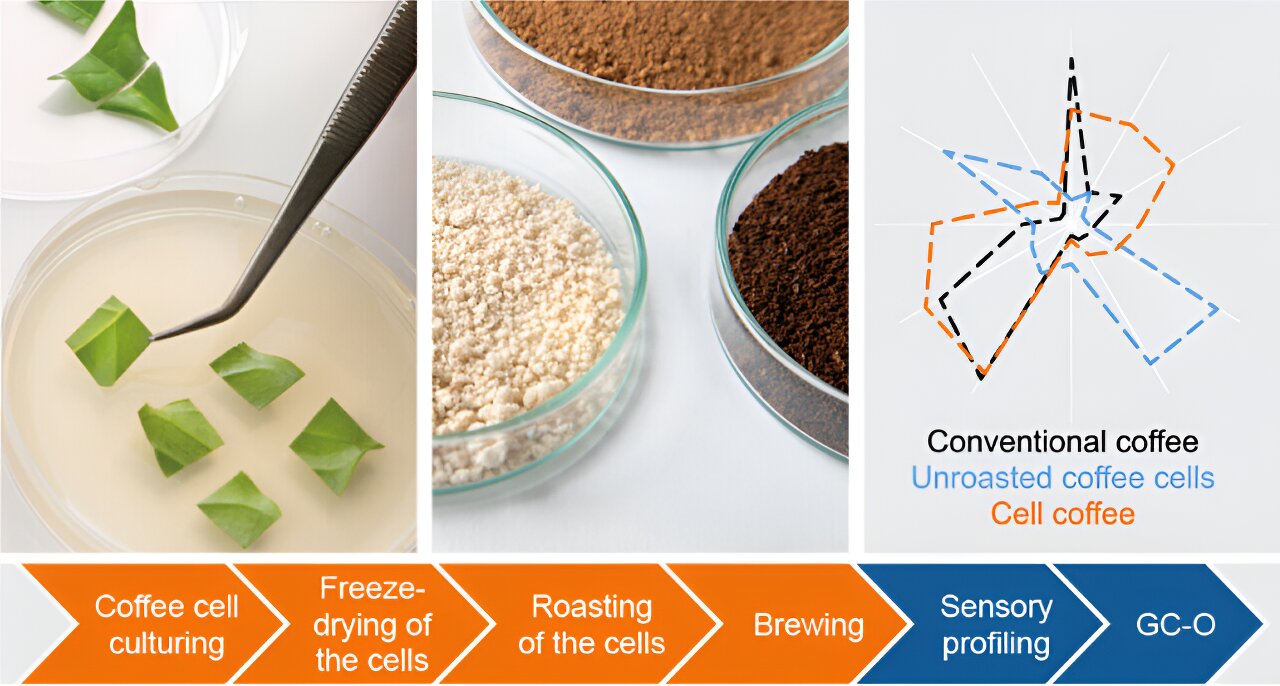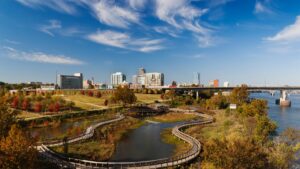

Two years after the scientists in Finland successfully made coffee in a laboratory, VTT Technical Research Center of Finland Ltd has released detailed information on the process. Published in the Journal of Agriculture and Food Chemistry, the scientific paper describes the exact process the scientists used to produce coffee starting from the original coffee plant itself, and establishing cell cultures to alter its aroma in the roasting process, caffeine content, flavor analysis, and sensory profiling by a panel of tasters.
While demand for coffee is rising, the production of coffee beans faces multiple sustainability challenges, concerning land and water use, laborers’ rights, and climate change. According to the Center for the Promotion of Imports, Europe, the highest consumer of coffee in the world, imported over 3,602 thousand tons (3.6 million tons) of green coffee in 2021, with an estimated average of 5 kg of coffee consumed per person each year.
Cellular agriculture provides a potential avenue for solving the main issues in coffee production in a sustainable way, also allowing for more regional self-sufficiency in areas with climates that are not suitable for coffee bean farming. In addition, lab-grown coffee has the potential to speed up coffee production significantly.
Traditionally farmed coffee provides 1–2 harvests per year, whereas a new batch of lab-grown coffee can be made in a month due to the controlled process and the infinitely renewable nature of coffee plant cells that removes the need to grow new coffee plants from seeds.
However, the journey of lab-grown coffee to grocery store shelves and people’s kitchens is anything but complete. Dr. Heiko Rischer, Principal Scientist and Head of Plant Biotechnology at VTT, calls for an ecosystem dedicated to the production and commercialization of lab-grown coffee.
“It’s one thing to grow coffee cells in a bioreactor. Making it a commercially viable product is a whole other matter. The raw material derived from different cultivars and species, and the soil, the elevation, climate, and even the year when the particular coffee beans were grown plus the processes of roasting, fermentation, brewing, are all factors that impact the end product. While lab-grown coffee is much more controlled, different approaches to, for example, roasting significantly impact the aroma profile of the coffee which is a key consideration for the end-customer—the consumer,” elaborates Dr. Rischer.
Ideally, players interested in the same coffee value chain, such as cultivators, roasters, blenders, fermenters, and coffee brands could come together to build the processes required to produce and commercialize the new sustainable type of coffee.
“Our wish is that the publication of this paper, which clearly demonstrates proof of concept for lab-grown coffee, nudges forward the creation of an ecosystem or a collective that has the resources, know-how, and drive to pioneer an entirely new type of coffee. It is a huge challenge but one VTT is prepared to take on with the right partners and experts,” says Dr. Rischer.
More information:
Heikki Aisala et al, Proof of Concept for Cell Culture-Based Coffee, Journal of Agricultural and Food Chemistry (2023). DOI: 10.1021/acs.jafc.3c04503
Provided by
VTT Technical Research Centre of Finland
Citation:
Scientists release the recipe for lab-grown coffee to accelerate creation of new coffee ecosystem (2023, December 12)
retrieved 12 December 2023
from https://phys.org/news/2023-12-scientists-recipe-lab-grown-coffee-creation.html
This document is subject to copyright. Apart from any fair dealing for the purpose of private study or research, no
part may be reproduced without the written permission. The content is provided for information purposes only.





